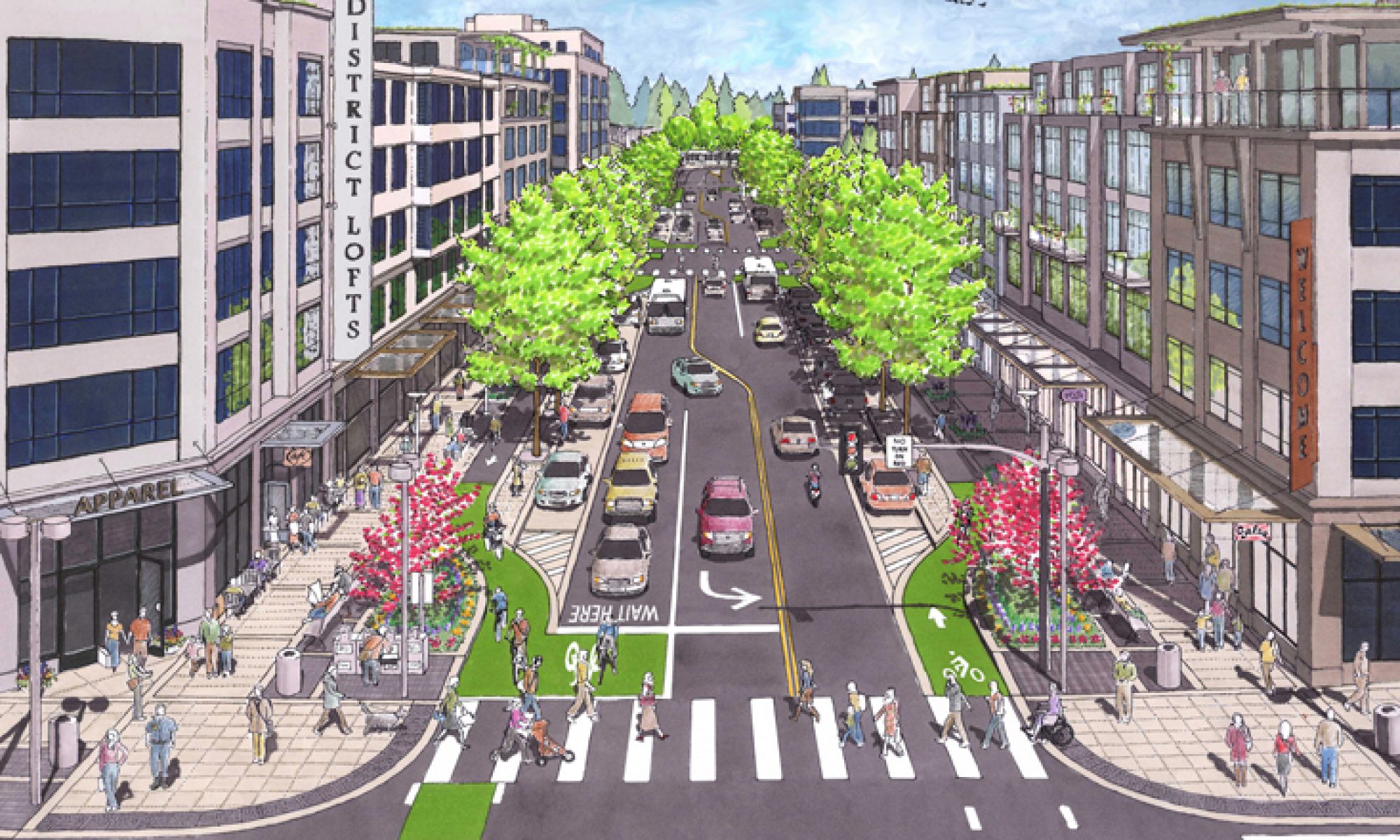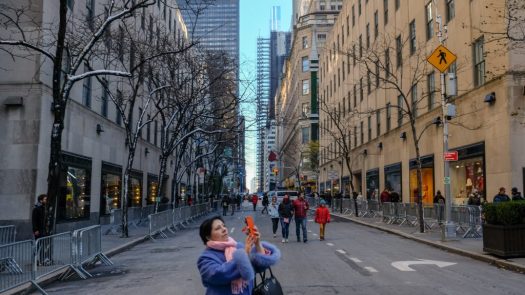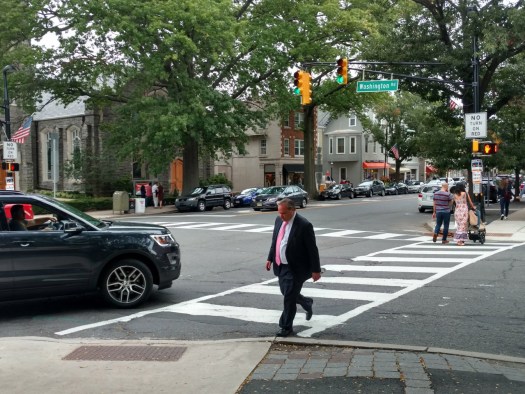Strolling around Rockefeller Plaza is a pleasure for visitors this Christmas season. NYC went through the expected bureaucratic machinations, but finally did it. Streets are walkable, and cars are marginalized (at least temporarily), and even the naysayers have changed their tune, enjoying the friendliness and lack of traffic congestion. Cities all over the world are re-imagining their relationship with cars and re-designing for people. We can begin to see this becoming a reality in Asbury Park. Onward, looking forward to a people-centered city. Happy 2020 and beyond!
Rockefeller Center visitors cheer added pedestrian space during the holidays
Vincent Barone
“Less is more, regarding traffic,” said Joe Friedman, a Connecticut resident who commutes to Rockefeller Center for his job in television production as he took a break on 49th Street. “There’s usually much more congestion and you’re fighting for space all the time.”
Photos: A First Look At The New Rock Center Pedestrian Zones
On the ground, the pilot program was, unsurprisingly, a huge hit with the people walking in the middle of the street. “We’re from Oklahoma, and this is great!”, one of the tourists told Gothamist. “I hope they do this with more streets,” said an Upper West Side woman out shopping with her daughter. “It’s so nice to have to have some space, and not have to worry about cars.” Even the one guy I found who may have had a legitimate reason to be irritated by the change, a Baldor’s driver on delivery who had to park his truck two blocks away and hand truck his produce in instead of pulling into the Rock Center garage, was not at all annoyed. “Look at all the happy people,” he told me. “Taking pictures, holding hands… it’s beautiful.”



















